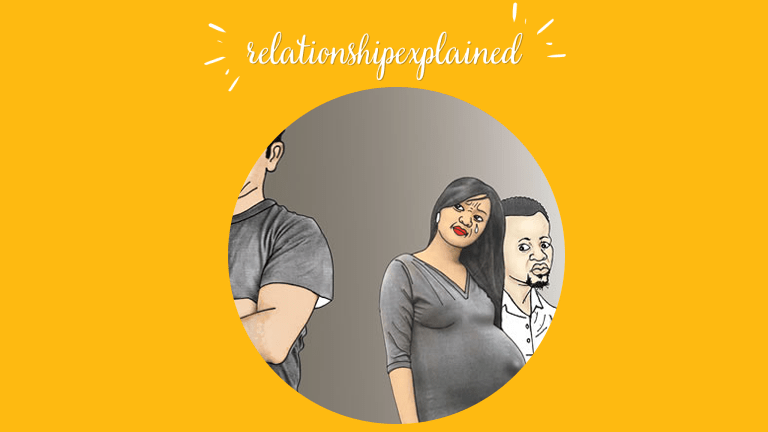How to Stop Overthinking in a Relationship
Struggling with the endless cycle of overthinking in your relationship? It's a common issue that can create a whirlwind of stress, anxiety, and misunderstandings, potentially putting a strain on your bond with your partner. Fortunately, there are effective strategies to help you break free from this pattern and foster a healthier, more fulfilling relationship. Well, […]
Struggling with the endless cycle of overthinking in your relationship?
It's a common issue that can create a whirlwind of stress, anxiety, and misunderstandings, potentially putting a strain on your bond with your partner. Fortunately, there are effective strategies to help you break free from this pattern and foster a healthier, more fulfilling relationship.
Well, we'll be going over:
- How can understanding the roots of overthinking in relationships help you tackle the problem?
- What practical strategies can you implement to keep overthinking at bay?
- How does enhancing communication with your partner aid in reducing overthinking?
Let's dive in.
Understanding Overthinking in Relationships
Before we dive into strategies to stop overthinking, it's important to understand what overthinking is and how it affects your relationship. Overthinking is when you constantly analyze and obsess over every detail, often leading to negative thoughts and anxiety. In a relationship, overthinking can cause you to doubt your partner's intentions, misinterpret their actions, and create unnecessary conflict.
Strategies to Stop Overthinking
One way to stop overthinking is to practice mindfulness. This involves being present in the moment and focusing on your thoughts and feelings without judgment. Another strategy is to challenge your negative thoughts and replace them with positive ones. For example, if you find yourself thinking "my partner doesn't care about me," challenge that thought by thinking of all the ways your partner shows they care.
Key Takeaways
- Overthinking can be detrimental to your mental health and your relationship.
- Mindfulness and positive self-talk are effective strategies for stopping overthinking.
- Communication and setting boundaries with your partner can help alleviate overthinking in a relationship.
Understanding Overthinking in Relationships
Overthinking in relationships is a common issue that can cause a lot of stress and anxiety. If you find yourself constantly questioning your partner's actions or intentions, or if you are always worried about the future of your relationship, you may be overthinking.
Identifying Signs of Overthinking
It is important to be able to identify the signs of overthinking in your relationship. Some common signs include:
- Constantly questioning your partner's actions or intentions
- Worrying about the future of your relationship
- Obsessively analyzing conversations or interactions with your partner
- Feeling anxious or stressed about your relationship
- Having negative thoughts about yourself or your partner
- Doubting your partner's feelings for you
Psychological Roots of Overthinking
Overthinking in relationships can have a variety of psychological roots. Some common causes include:
- Fear of abandonment or rejection
- Insecurity or low self-esteem
- Trauma from past relationships
- Cognitive distortions, such as black-and-white thinking or catastrophizing
- Mental health issues, such as anxiety or depression
Understanding the psychological roots of your overthinking can help you address the issue and find ways to stop overthinking in your relationship.
Remember, overthinking can cause a lot of unnecessary stress and anxiety in your relationship. By identifying the signs of overthinking and understanding the psychological roots of the issue, you can start to take steps to stop overthinking and improve your relationship.
Strategies to Stop Overthinking
Overthinking can be a significant problem in any relationship, leading to anxiety, stress, and even depression. However, there are several strategies you can use to stop overthinking and build a more fulfilling relationship with your partner.
Cultivating Mindfulness and Presence
Cultivating mindfulness and presence can be an effective way to stop overthinking in a relationship. Mindfulness involves being present in the moment and focusing on your thoughts and feelings without judgment. You can do this by practicing meditation, yoga, or other mindfulness exercises.
When you are mindful, you are more aware of your thoughts and feelings, which can help you recognize when you are overthinking. You can then take steps to address your thoughts and feelings in a more productive way.
Improving Communication with Your Partner
Improving communication with your partner can also help you stop overthinking in your relationship. Often, overthinking stems from miscommunication or misunderstandings between partners. By improving your communication skills, you can reduce the likelihood of these misunderstandings occurring.
To improve communication, try to be more open and honest with your partner. Listen actively and try to understand their perspective, even if you don't agree with it. Use "I" statements instead of "you" statements to express your thoughts and feelings. This can help prevent your partner from becoming defensive and encourage them to listen and respond in a more positive way.
Developing Trust and Letting Go of Control
Developing trust and letting go of control can also help you stop overthinking in your relationship. Often, overthinking stems from a lack of trust or a desire to control the situation.
To develop trust, try to be more vulnerable with your partner. Share your thoughts and feelings openly and honestly. This can help build a deeper connection between you and your partner, which can lead to greater trust over time.
To let go of control, try to focus on what you can control and let go of what you can't. Accept that you can't control everything in your relationship and that sometimes things will not go as planned. This can help reduce your anxiety and stress levels, which can help you stop overthinking.
In some cases, therapy can also be helpful in stopping overthinking in a relationship. A therapist can help you develop self-awareness, grounded in evidence, and acceptance, which can help you address your overthinking in a more productive way.
Practical Techniques for Managing Thoughts
Overthinking can be exhausting and often leads to anxiety and stress, especially in a relationship. However, there are several practical techniques that can help you manage your thoughts and break the cycle of anxious rumination.
Journaling to Organize Thoughts
Journaling is an effective way to organize your thoughts and gain clarity about your emotions. Writing down your thoughts and feelings can help you identify patterns and triggers that contribute to overthinking. You can also use journaling to reflect on your experiences and identify areas of your life that need improvement.
When journaling, it's important to be honest with yourself and avoid judging your thoughts or feelings. Instead, focus on understanding them and finding ways to address them. You can also use prompts to help you get started, such as "What am I feeling right now?" or "What is causing me to overthink?"
Meditation and Relaxation Exercises
Meditation and relaxation exercises can help you calm your mind and reduce anxiety. These techniques involve focusing on your breath or a specific object while letting go of distracting thoughts. Regular practice can help you develop mindfulness and increase your ability to stay present in the moment.
There are many different types of meditation and relaxation exercises to choose from, including guided meditations, body scans, and progressive muscle relaxation. Experiment with different techniques to find what works best for you.
Seeking Professional Help
If overthinking is significantly impacting your life and relationships, it may be helpful to seek professional help. A therapist can help you identify the root causes of your overthinking and develop strategies to manage it.
Psychotherapy is a common treatment for anxiety and can help you break the rumination cycle. Cognitive-behavioral therapy (CBT) is a type of psychotherapy that focuses on changing negative thought patterns and behaviors. It can be particularly helpful for managing overthinking.
In conclusion, managing overthinking in a relationship requires self-reflection and a willingness to try different techniques. Journaling, meditation, and seeking professional help are just a few practical techniques that can help you manage your thoughts and break the cycle of anxious rumination.
Navigating Relationship Dynamics
Navigating the dynamics of a relationship can be challenging, especially when it comes to keeping the balance between emotional needs and responsibilities. It's essential to understand that every relationship is unique and that there is no one-size-fits-all solution to dealing with relationship dynamics. However, there are some general guidelines that you can follow to help you navigate your relationship more effectively.
Dealing with Conflict and Arguments
Conflict and arguments are a natural part of any relationship. However, when they become too frequent or intense, they can cause significant damage to the relationship. One way to deal with conflict and arguments is to avoid getting into them in the first place. This means being mindful of your triggers and avoiding topics that you know are likely to lead to conflict.
If you do find yourself in an argument, it's essential to stay calm and avoid getting defensive. Instead, try to listen to your partner's perspective and validate their feelings. Remember that you don't always have to agree with your partner, but you do need to respect their opinion. If you're having trouble resolving a conflict, consider seeking the help of a therapist or counselor.
Balancing Emotional Needs and Responsibilities
In any relationship, it's essential to balance emotional needs and responsibilities. Emotional needs include things like love, affection, and support, while responsibilities include things like work, household chores, and financial obligations. It's crucial to find a balance between these two aspects of your relationship.
One way to balance emotional needs and responsibilities is to communicate openly with your partner. Talk about your needs and responsibilities and work together to find a balance that works for both of you. Be willing to compromise and make adjustments as needed.
Another way to balance emotional needs and responsibilities is to prioritize your relationship. This means making time for each other and doing things that strengthen your bond, such as going on dates or taking a vacation together. Remember that your relationship is a partnership, and both partners need to contribute equally to make it work.
In summary, navigating relationship dynamics can be challenging, but it's essential to find a balance between emotional needs and responsibilities. By being mindful of your triggers, communicating openly with your partner, and prioritizing your relationship, you can build a strong and healthy relationship that lasts.
Maintaining Mental Health and Self-Care
Maintaining your mental health and practicing self-care are crucial for stopping overthinking in a relationship. When you take care of yourself, you are better equipped to handle the challenges that come with being in a relationship. Here are some tips on how to maintain your mental health and practice self-care:
Recognizing When to Seek Help
If you find that your overthinking is negatively impacting your mental health, it may be time to seek help. Therapy can be an effective tool for managing anxiety disorders and improving your mental health. A relationship therapist or dating coach can also help you work through any issues you may be having in your relationship. Remember, seeking help is a sign of strength, not weakness.
Building Self-Esteem and Resilience
Building self-esteem and resilience can help you stop overthinking in a relationship. When you have high self-esteem, you are less likely to doubt yourself and your partner. Focus on your strengths and accomplishments, and try not to dwell on your weaknesses. Practicing positive self-talk can also help boost your self-esteem.
Resilience is the ability to bounce back from difficult situations. Building resilience can help you cope with the ups and downs of a relationship. Some ways to build resilience include:
- Practicing mindfulness and meditation
- Engaging in regular exercise
- Eating a healthy diet
- Getting enough sleep
- Cultivating a support system of friends and family
Remember, taking care of your mental health and practicing self-care is essential for stopping overthinking in a relationship. If you find that your overthinking is negatively impacting your mental health, seek help from a therapist or relationship coach. Building self-esteem and resilience can also help you cope with the challenges of a relationship.
Frequently Asked Questions
What are common triggers that lead to overthinking in relationships?
Overthinking in relationships can be triggered by a variety of factors. Common triggers include fear of abandonment, past relationship trauma, low self-esteem, and attachment style. Additionally, lack of communication, unresolved conflicts, and unrealistic expectations can also lead to overthinking.
Can you recommend strategies to overcome relationship anxiety?
Yes, there are several strategies that can help you overcome relationship anxiety. One effective strategy is to practice mindfulness. This involves focusing on the present moment and observing your thoughts and emotions without judgment. Another strategy is to challenge negative self-talk and replace it with positive affirmations. Seeking support from a therapist or counselor can also be helpful.
What are the signs that one is overthinking within a relationship?
Some signs that you may be overthinking within a relationship include excessive worry, rumination, and obsessing over small details. You may also find yourself constantly seeking reassurance from your partner, experiencing physical symptoms of anxiety, and feeling emotionally drained.
How does overthinking negatively impact relationship dynamics?
Overthinking can negatively impact relationship dynamics in several ways. It can lead to increased conflict, decreased intimacy, and a lack of trust. Overthinking can also cause one partner to feel suffocated and the other partner to feel emotionally drained.
How can one manage assumptions and expectations to avoid overthinking?
Managing assumptions and expectations is key to avoiding overthinking in relationships. One way to do this is to communicate openly with your partner and clarify any misunderstandings. It's also important to recognize that your partner is not responsible for meeting all of your needs and to set realistic expectations.
What steps can be taken to rebuild trust and stop overthinking after infidelity?
Rebuilding trust after infidelity can be a long and difficult process. It's important to seek support from a therapist or counselor and to communicate openly with your partner. Both partners must be committed to the process and willing to work through the pain and emotions that arise. It's also important to set clear boundaries and expectations moving forward.










